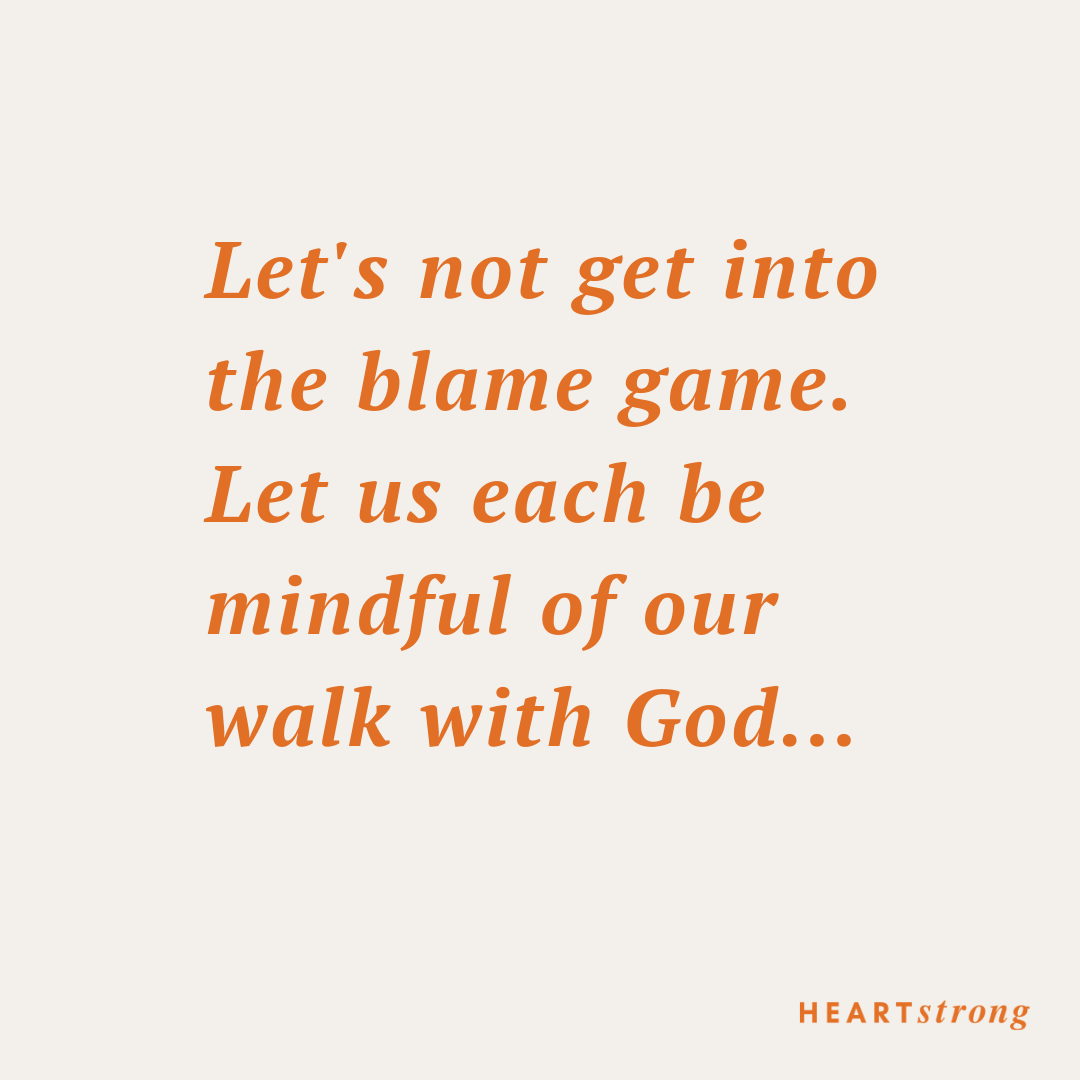
In a recent HEARTstrong morning teaching, Pastor Jason spoke of blamelessness versus sinlessness.
Blameless vs sinless, what does this mean? No one is without sin, no one, only Jesus. We have all sinned and fallen short.
Matthew 8:7(ESV)says, “Let him who is without sin among you be the first to throw a stone at her.”
Sinless is to be without blemish – to have a faultless record in every way, thought, word, and deed. No one can be sinless. No one can achieve this perfection in the eyes of God as He is the only measure of right and wrong. And yes, though we have all sinned and fallen short, in His great love and mercy and grace, He gave us a way out: He planned and authorized that His Son’s blood would fully pay the penalty for our sins.
But what about blameless? Can we be blameless?
Dr. Steven Lawson explains the difference in his commentary on Job. He says, “Sin is vertical, blame is horizontal…as Job lived before the watchful eye of his peers, no one could justly charge him with moral failure because his reputation was impeccable”.
What does blameless mean? Blameless is used to describe someone who hasn’t done anything wrong—they haven’t done anything to be assigned blame. To blame someone for something is to accuse them of having caused it or hold them responsible. Dr. Lawson’s quote about Job speaks of him being blameless because of his reputation, behaviour, acts, or position in the community with others, as it was noted as impeccable. You see, blame has more to do with what others think of us; it is a judgement we impose, we decree. Sin has to do with disobedience toward our Creator because He is the One who designed our “target,” whereas blame has to do with accusations of the people.
So the blame game puts us in the position of judgment. Yet if we are all sinful by nature, does that not cause us to be disqualified from blaming too? And even to receive the blame of others upon us? Who are we to judge each other since we are flawed ourselves? When judging someone’s behaviour, whether it is a blatant sin or just different from our own, we cannot use the proper standard of judgement as God only knows this.
Placing blame puts us in a position to be the judge, which is an act of pride; it only serves to elevate the person blaming over the one who is at fault in their eyes. Yet God calls us to love one another, to act towards others with the same grace and mercy that we have received. To love as Jesus loves, to serve one another. Blaming puts us in the position of accusing, and we do not want to act as the accuser of man as Satan does. He is the great accuser. 2 Corinthians 2:11 (NASB)tells us “so that no advantage would be taken of us by Satan, for we are not ignorant of his schemes.” We know he is a liar and a thief whose sole purpose is to kill, steal and destroy.
Let us not act in this way. Let’s not get into the blame game. Let us each be mindful of our walk with God and live in a way that honors and pleases Him.
In Matthew 8:7, Jesus tells us the one without sin can cast the first stone. But who are we to even think we can judge the person in the first place? As followers of Christ, we know we have a sinful nature, so we are not qualified to blame or judge. In fact, we should cast down this spirit in us as it is not rooted in love, compassion and a posture of serving others.
“Do not judge or you will be judged. For with the judgment, you pronounce you will be judged, and with the measure, you use it will be measured to you” Matthew 7:1-2 (ESV). The danger in judging others is that our standards come back to haunt us.
For me, this was a meaningful exploration into blamelessness versus sinlessness. It brought me to affirm that I must not partake in the blame game that shines the spotlight on my character and behaviours but only concern myself with the one true judge: focusing vertically and not horizontally.
Your Turn! Share your thoughts in the comments below. Thank you!

